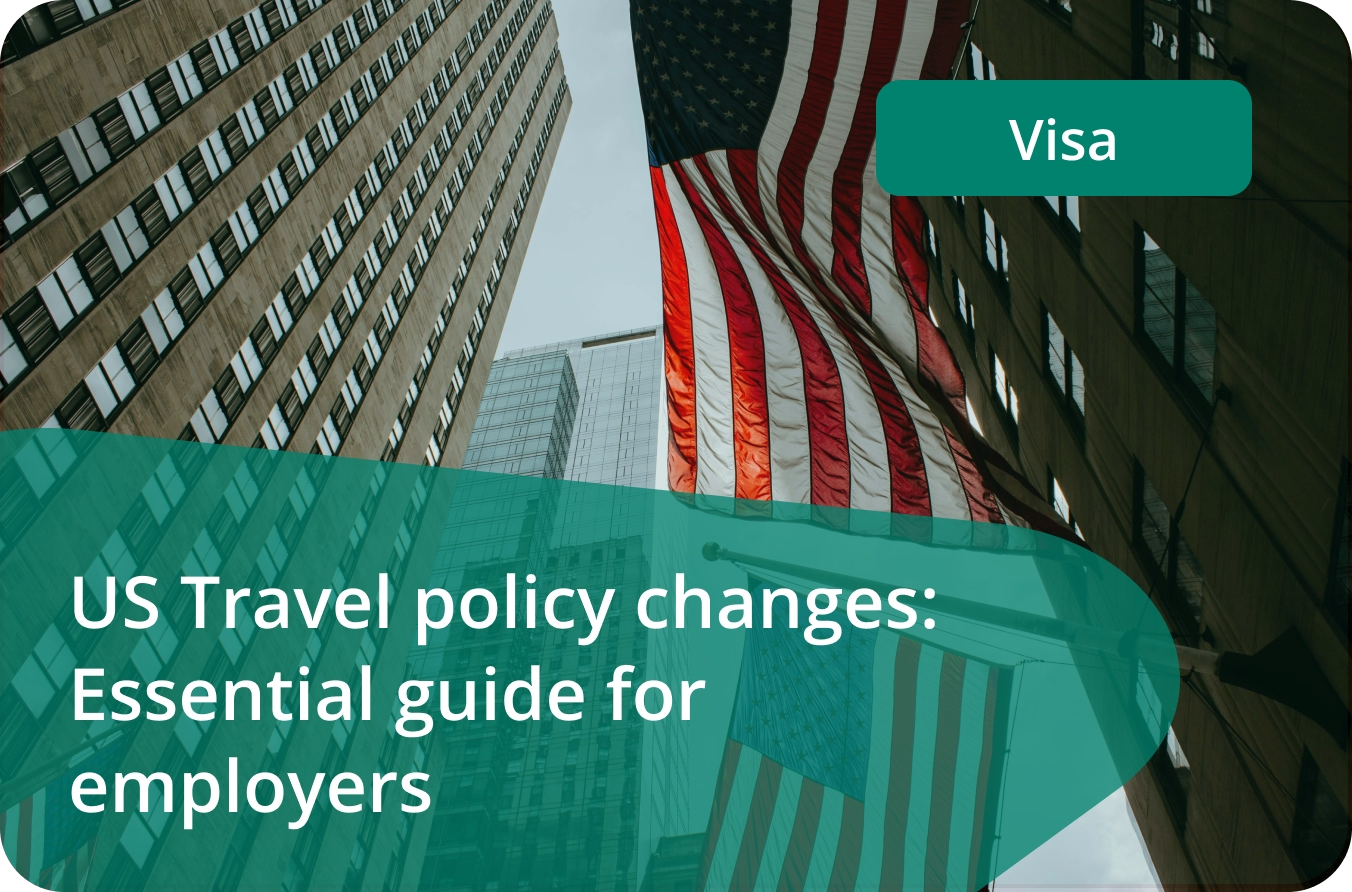Articles
Business Trip vs. Assignment: Understanding the key differences
Determine if your employee is going on a business trip or assignment, understand the key differences and implications for your travel compliance policy.

Companies with international operations are routinely sending employees across borders for various purposes. Here's the thing though: distinguishing between a business trip and an assignment for these travels is absolutely crucial, as it impacts both the employee experience and compliance requirements for the employer. However, making this distinction isn't always as straightforward as you might think - and getting it wrong can have some pretty significant consequences.
Let's explore the key differences between these two types of cross-border work and how WorkFlex can help you navigate them effectively.
What is a business trip?
When we talk about business trips, we're usually looking at situations that involve:
- Short-term, task-oriented travel: Employees travel to accomplish specific, limited objectives
- Occasional presence: The employee maintains their primary workplace in their home country
- Limited local integration: The employee isn't working "like a local" but rather as a visitor
Take this example: when a CEO flies to a new potential market to meet local officials, sign agreements, and set up an office, that's a business trip. Similarly, if you're sending an HR professional to implement a specific process in your foreign subsidiary, that would typically fall under the business trip category too.
What is an assignment?
An assignment has different features compared to a business trip:
- Longer duration: Often lasting several months up to years (though duration alone isn't the determining factor)
- Deeper integration: The employee works "more like a local" during their stay
- Changed living arrangements: Instead of hotels, employees typically have apartments or other longer-term accommodations
- Extended presence: The employee is embedded in the destination location for a substantial period
- Return-focused: The explicit understanding is that the employee will return to their home location after completing their task
Here's a clear example: when a company sends a regional director to another country for a year to broaden their professional horizons and strengthen leadership in that region, that's definitely an assignment. Same goes for technical specialists who relocate to bring production facilities up to company standards - they're on assignment, not just visiting.
Tax implications: The key differentiator
The most significant distinction between business trips and assignments comes down to tax implications, and this is something you absolutely need to get right:
- Business trips: Companies typically aim to avoid triggering tax obligations in the destination country.
- Assignments: Companies acknowledge and plan for the employee becoming taxable in the destination country.
Here's the general rule of thumb that most companies follow:
- Under 183 days: Companies may attempt to avoid tax implications (though other compliance requirements like social security certificates still apply)
- Over 183 days: Tax implications in the destination country are virtually inevitable
This distinction matters because it completely changes how you approach compliance planning. With a business trip, you're focused on preserving home country status and keeping things streamlined. With an assignment, you're shifting gears to properly manage all the necessary compliance steps in the destination country.
Why correct classification matters for your company
Your decision to classify cross-border work as either a business trip or an assignment has real consequences across several areas:
- Compliance strategy: Different compliance actions are required depending on classification
- Cost structure: Business trips often fall under travel policies with different allowances than assignments (e.g., business class flights, stay in a hotel, etc.)
- Benefits and compensation: Whether a trip is marked as a business trip or an assignment affects what employees expect in terms of accommodations, allowances, and support
And here's what can happen when you get the classification wrong:
- Unexpected tax liabilities
- Compliance penalties
- Excessive costs due to inappropriate policy application
- Employee dissatisfaction due to unmet expectations
When does WorkFlex consider a trip a Business trip or an Assignment?
Companies with international operations often send employees across borders for various purposes. Distinguishing between a business trip and an assignment is crucial, as it affects the employee experience, and can have significantly different compliance implications for the employer. However, the law does not provide strict definitions as to when a trip has to be considered as a business trip, or as an assignment. Consequently, some people and companies may treat a trip as a business trip, whereas other people and companies may consider the same trip as an assignment – and neither of them would be doing anything wrong.
At WorkFlex, we use the following guidelines for classifying trips:
- If the trip duration is 90 days or below: this trip is always considered a business trip.
- If the trip duration is 183 days or above: this trip is always considered assignments.
- If the trip duration is between 90 and 183 days: the classification depends on the intention of the trip. If the employee is integrated into the company in the destination country, we classify it as an assignment. If not, we consider it a business trip. With integration, we generally mean that the employee will work for the benefit of the destination company, reports to a manager at the destination company, etc.
It is important to note that, if there are multiple trips from an employee to the same destination, you should consider the accumulated presence when applying the rules above. So, if an employee is going to the same destination from Monday to Friday for 20 weeks in a row, you cannot stop at rule #1 by saying each trip is below 90 days. Instead, the classification needs to be done on the basis of the integration question of rule #3, as the accumulated presence of the employee is 20*5 = 100 days, thus between 90 and 183 days.
As, again, the definitions of business trip and assignment are not prescribed by law, it is possible that companies classify trips differently than WorkFlex would. If a company’s policy states that any trip exceeding a certain duration (e.g., 60 days) should be classified as an assignment, this is not wrong and the WorkFlex platform can support it. An example that we have seen more than once, are inter-company exchange programmes. Under such a programme, employees can work at a group entity abroad for a period usually varying between 30 and 90 days – merely as a (learning) experience and without the company paying for it. For several reasons, companies often prefer to set up such cases as an assignment rather than a business trip.
Any classification the other way around is a bit more tricky: It is very uncommon to qualify a trip that lasts longer than 183 days “just” as a business trip. The reason for this is that such trip is unlikely to be able to take place without any tax- and labour law-related consequences in the destination country, justifying an assignment letter – and thus treatment as an assignment in general.
How to make the right decision for your company
When you're trying to decide whether to classify cross-border work as a business trip or assignment, here are the key factors you should be weighing:
- Duration: While not the only factor, longer stays typically lean toward assignment classification
- Nature of work: Is the employee visiting temporarily or integrating into local operations?
- Cost implications: Which classification aligns with your budget expectations?
- Compliance comfort level: Are you prepared to manage the compliance requirements of either approach?
The good news is that with WorkFlex, you don't have to navigate these complex decisions alone. Our platform helps you evaluate risks and implement the right compliance strategy regardless of classification.
Conclusion
Whether you end up managing business trips or assignments, the key thing to remember is that you need to understand the compliance implications of your choices. The classification you choose isn't just a paperwork exercise - it has real consequences for your costs, your compliance obligations, and your employee experience. By partnering with WorkFlex, you're getting a trusted advisor that helps you maintain compliance for every single trip, so you can focus on what you do best: running your business.
.png)
Outsource your travel compliance worries to WorkFlex
Let us handle compliance for your employee business trips and assignments worldwide with all-in-one, automated travel compliance platform
.png)
Outsource your travel compliance worries to WorkFlex
Let us handle compliance for your employee business trips and assignments worldwide with all-in-one, automated travel compliance platform
.png)
Outsource your travel compliance worries to WorkFlex
Let us handle compliance for your employee business trips and assignments worldwide with all-in-one, automated travel compliance platform
.png)
Outsource your travel compliance worries to WorkFlex
Let us handle compliance for your employee business trips and assignments worldwide with all-in-one, automated travel compliance platform
related posts
With WorkFlex, compliance is no longer a roadblock to offering
workations and business travel
Join hundreds of companies managing their work from abroad requests compliantly.









































